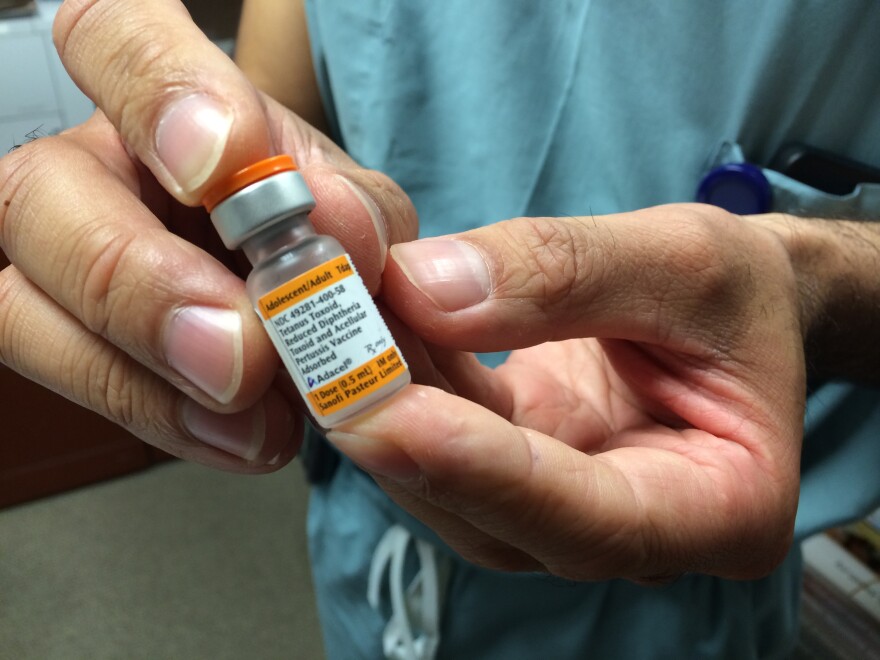Pertussis, commonly known as whooping cough, is a highly contagious respiratory disease caused by Bordetella pertussis. While it can affect individuals of any age, it is particularly dangerous for infants under two months who are too young to be vaccinated. Maternal immunization with the Tdap vaccine during pregnancy, especially in the third trimester, has proven to be the most effective strategy to protect newborns by passing protective antibodies before birth.

What is the Tdap Vaccine?
The Tdap vaccine is a combination immunization against tetanus, diphtheria, and acellular pertussis. It is distinct from the DTaP vaccine given to infants and children.
- Tetanus: Prevents a bacterial infection causing muscle stiffness and spasms.
- Diphtheria: Protects against a serious throat infection leading to breathing issues and heart failure.
- Pertussis: Shields against whooping cough, which can cause severe coughing fits and complications in infants.
Why Third Trimester Tdap Vaccination is Crucial
Optimal Timing for Antibody Transfer
The ideal time for Tdap vaccination is between 27 and 36 weeks of gestation, with preferable administration during the early part of this window. Vaccination during the third trimester ensures maximum transplacental transfer of maternal antibodies, providing direct protection to the infant during their most vulnerable period.
Protection Before Infant Immunization Begins
Infants receive their first dose of DTaP at 2 months. Between birth and this point, they are highly susceptible to pertussis. Maternal Tdap vaccination bridges this vulnerability gap, dramatically reducing hospitalization and mortality rates.
Efficacy of Tdap Vaccination in Pregnancy
Numerous clinical studies and global health agency reviews have confirmed the high efficacy of maternal Tdap vaccination:
- Effectiveness in infants <3 months: Up to 91% protection against pertussis.
- Reduction in hospitalizations: Over 90% lower risk of hospitalization for infants of vaccinated mothers.
- Population-wide impact: Countries implementing third-trimester Tdap have seen a significant drop in infant pertussis cases and related deaths.
Safety of Tdap Vaccine During Pregnancy
Clinical Safety Profile
The Tdap vaccine has a well-established safety record for both mother and fetus:
- No increased risk of preterm birth, low birth weight, or congenital anomalies.
- Mild side effects may include injection site soreness, fatigue, or low-grade fever, similar to other vaccines.
Global Health Organization Endorsements
- Centers for Disease Control and Prevention (CDC): Recommends Tdap during every pregnancy.
- World Health Organization (WHO): Endorses maternal pertussis vaccination to protect infants worldwide.
- ACOG (American College of Obstetricians and Gynecologists): Strongly supports vaccination in the third trimester.
Immunization Strategy: Every Pregnancy, Every Time
Why Vaccination is Needed in Every Pregnancy
Maternal antibodies decline over time. Even if a woman received Tdap in a prior pregnancy or as an adult, antibody levels may not be high enough to protect future newborns. For optimal effectiveness, vaccination is necessary during every pregnancy, regardless of prior Tdap history.
Partner and Caregiver Cocooning
While maternal immunization is primary, vaccinating other close contacts (partners, grandparents, caregivers) helps create a protective “cocoon” around the infant, reducing their exposure risk.
Addressing Common Misconceptions
“I’ve Had Tdap Before, So I Don’t Need It Again”
This is incorrect. The objective is to boost maternal antibody levels for each specific pregnancy, ensuring each baby receives maximum protection.
“The Vaccine Will Harm My Baby”
There is no evidence that the Tdap vaccine harms the fetus. On the contrary, not vaccinating during pregnancy increases the infant’s risk of severe pertussis, hospitalization, and death.
Recommendations from Health Authorities
| Organization | Recommendation |
|---|---|
| CDC | Tdap between 27–36 weeks of each pregnancy |
| WHO | Encourage maternal immunization in countries with high infant pertussis rates |
| ACOG | Routine Tdap in every pregnancy, ideally in early third trimester |
| NHS (UK) | Recommend Tdap between 16–32 weeks for broader protection |
Long-Term Benefits and Public Health Impact
Herd Immunity Boost
Widespread maternal Tdap vaccination contributes to community immunity, reducing the overall circulation of B. pertussis.
Lower Healthcare Burden
By preventing infant hospitalizations and ICU admissions, maternal immunization reduces economic and healthcare system strain.
Protection Across Birth Settings
Whether a child is born in a hospital or a home birth setting, the benefits of maternal vaccination remain consistent and essential.
Frequently Asked Questions:
Is the Tdap vaccine safe during pregnancy?
Yes. It is recommended by the CDC, WHO, and ACOG as a safe and essential maternal vaccine.
When is the best time to receive the Tdap vaccine during pregnancy?
Between 27 and 36 weeks, preferably early in the third trimester.
Does the Tdap vaccine protect the baby?
Yes. It passes protective antibodies to the fetus, guarding against pertussis in the early months after birth.
Should I get Tdap in every pregnancy?
Yes. Immunity wanes over time, and each baby requires fresh protection.
Can the baby still receive regular DTaP vaccinations after birth?
Absolutely. Maternal Tdap does not interfere with the infant’s vaccine schedule.
Administering the Tdap vaccine during the third trimester of pregnancy is a critical, evidence-based intervention to safeguard newborns from pertussis. It is safe, effective, and strongly recommended by global health authorities. We urge all pregnant individuals and healthcare providers to prioritize this simple yet lifesaving step in prenatal care. Consistent immunization in every pregnancy is essential to reduce pertussis incidence and protect the youngest and most vulnerable members of our population.

